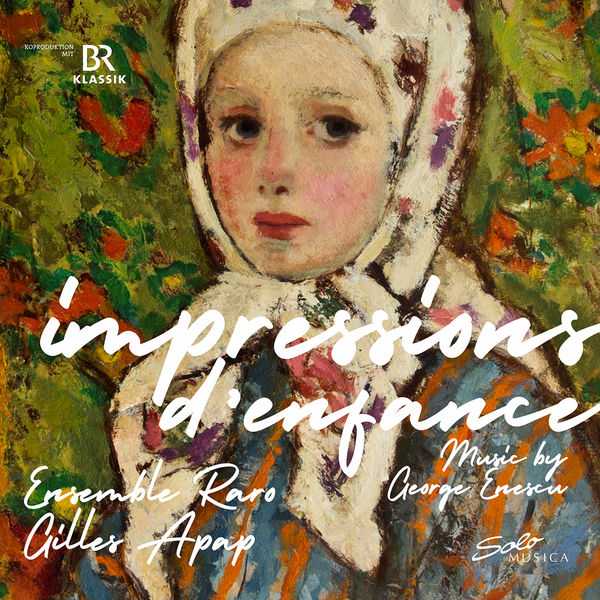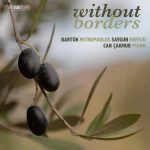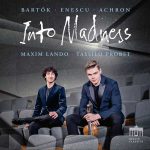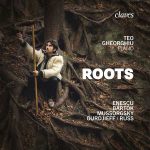

Composer: George Enescu
Performer: Anna-Liisa Bezrodny, Diana Ketler, Gilles Apap, Ensemble Raro
Format: FLAC (tracks)
Label: Solo Musica
Catalogue: SM396
Release: 2022
Size: 0.99 GB
Recovery: +3%
Scan: yes
Piano Quintet in D major
01. I. Allegro moderato
02. II. Scherzo vivace
03. III. Andante
04. IV. Allegro con spirito
05. Aubade
06. Sérénade lointaine
07. Pièce pour piano sur le nom de Fauré
Impressions d’enfance, Op. 28
08. No. 1, Ménétrier
09. No. 2, Vieux mendiant
10. No. 3, Ruisselet au fond du jardin
11. No. 4, L’oiseau en cage et le coucou au mur
12. No. 5, Chanson pour bercer
13. No. 6, Grillon
14. No. 7, Lune a travers les vitres
15. No. 8, Vent dans la cheminée
16. No. 9, Tempete au dehors, dans la nuit
17. No. 10, Lever de soleil
“Impressions d’enfance”, Ensemble Raro’s and Gilles Apap’s new recording, is dedicated to chamber music works of George Enescu. Piano Quintet in D is one of his earliest compositions. Written in 1896 at the age of fifteen during his studies at the Paris Conservatoire, it is certainly inspired by Brahms’ chamber works. Enescu himself confessed about Brahms’ enormous influence on his development: “the God of my youthful adoration is Brahms and I wrote my early works in the style of the immortal Johannes in an almost flagrant way”. The Quintet was premiered in 1897, in Enescu’s first recital of his own works in Paris at the age of sixteen; Massenet and Cortot were in the audience.
The two charming works for piano and string trio, Aubade and Sérénade lointaine, illustrate the point that Enescu’s beloved teacher Gabriel Fauré expressed very beautifully: “the greatest technical ability is not worth anything without poetry”. Even in the cleverly constructed short piece Hommage for piano, which is based on a motive representing the letters of Fauré’s name, the poetic, dreamy quality prevails.
Enescu’s late masterpiece Impressions d’enfance takes us back to the very first occasion when three year old George heard a street fiddler for the very first time. Impressions is an evocation of a childhood through a sequence of dreams, memories, imperceptible sensations and sounds. It results in one of Enescu’s most glorious climaxes where the old fiddler’s tune merges with cosmic piano harmony and the the noble, healing force of music triumphs over all. In Enescu’s own words: a man always “carries the music in himself. In the loneliness of the mountains and plains, it is his comrade; it calms his fears, it helps him sing his dor, that inexpressible nostalgia that breaks his soul”.



